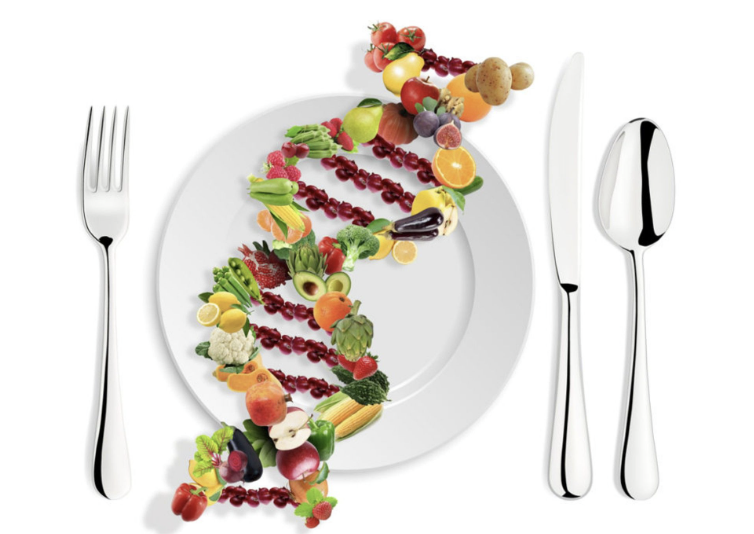Can Your DNA Tell You What to Eat? The Science Behind Personalized Nutrition
- Elane Bosman

- Jul 24, 2025
- 3 min read

Can Your DNA Tell You What to Eat?
The Science Behind Personalized Nutrition
For years, dietary guidelines have taken a one-size-fits-all approach. Yet in clinical practice, many patients following the same diet experience dramatically different results. While one person thrives on a Mediterranean plan, another may gain weight or feel sluggish. This variability has led to a growing interest in personalized nutrition, a model that tailors dietary recommendations to an individual’s genetics, metabolism, microbiome, and lifestyle.
A key question at the forefront of this movement is: Can your DNA truly determine what you should eat? And more importantly, is there enough scientific evidence to support using genetic testing to design customized nutrition plans?
This article examines the current research on nutrigenomics, metabolic variation, and individualized glucose responses—and what this means for the future of nutrition and chronic disease prevention.
What Is Personalized Nutrition?
Personalized nutrition refers to dietary recommendations tailored to an individual’s:
Genetic makeup
Metabolic markers
Gut microbiome profile
Lifestyle factors (e.g., sleep, stress, activity)
It integrates data from nutrigenomics (how genes influence nutrient response), metabolomics (how the body processes nutrients), and glycemic response profiling (how blood sugar responds to food) to create a more precise nutritional strategy.
Genetics and Diet: What Does the Science Say?
1. Genetic Variants Can Influence Nutrient Metabolism
Research shows that single nucleotide polymorphisms (SNPs)—small variations in DNA—can affect how individuals metabolize:
Caffeine (e.g., CYP1A2 gene)
Lactose (LCT gene)
Folate and B-vitamins (MTHFR gene)
Saturated fats and cholesterol (APOE, FTO, and others)
Omega-3 fatty acids (FADS1 gene)
Example: Individuals with the APOE4 gene may have higher LDL cholesterol levels in response to saturated fat intake compared to those without this variant.
Reference: Corella D et al., Nutr Metab Cardiovasc Dis, 2007.
2. MTHFR and Nutrient Activation
People with certain MTHFR gene variants have reduced ability to activate folate and may benefit more from 5-MTHF rather than folic acid supplementation.
Reference: Bailey LB & Gregory JF, Annu Rev Nutr, 1999.
While these findings are compelling, the impact of most genetic variants on dietary needs tends to be modest, and many require more research before they can guide individualized interventions with clinical confidence.
Beyond Genes: The Power of Glucose Response Personalization
Perhaps one of the strongest areas of evidence for personalized nutrition comes not from DNA, but from real-time metabolic tracking, such as with continuous glucose monitors (CGMs).
Study Spotlight: The Predict Study
In the 2015 landmark study by Zeevi et al. (Cell), researchers found that:
Individuals eating the same exact meal experienced wildly different blood glucose responses.
Personalized dietary recommendations based on blood sugar patterns significantly improved glucose control.
Zeevi D et al., Cell, 2015.
This suggests that glucose response variability—influenced by genes, microbiome, sleep, and stress—may be a more actionable and real-time marker for personalized nutrition than static DNA profiles.
Limitations of DNA-Based Diet Plans
1. Overinterpretation and Oversimplification
Direct-to-consumer genetic tests often make exaggerated claims, offering dietary suggestions based on weak or inconclusive evidence.
2. Small Effect Sizes
Most SNPs only slightly influence nutrient needs. Lifestyle, food quality, and environment often have a larger impact than genetics alone.
3. Genetics Are Not Destiny
While genes may predispose, they do not predetermine outcomes. Epigenetics—how environment and behavior affect gene expression—is a powerful modulator of health.
Functional and Integrative Approach to Personalized Nutrition
Functional medicine supports personalized nutrition—but with a broader scope than genetics alone. It considers:
Factor | Contribution to Personalization |
Genetic variants (SNPs) | MTHFR, APOE, FTO, etc. |
Metabolic labs | Glucose, insulin, lipid profile |
Gut health | Microbiome balance, permeability |
Lifestyle data | Sleep, stress, movement |
Nutrient testing | Vitamin D, B12, magnesium, etc. |
Real-time tracking | CGM, food-symptom journaling |
This systems-based, whole-person model helps tailor nutrition based on how the body is actually functioning—not just genetic predisposition.
Summary
Personalization Tool | Strength | Limitation |
Genetic testing | Insight into long-term tendencies | Often low predictive power |
CGMs/glucose testing | Actionable, real-time feedback | Requires interpretation |
Metabolomic panels | Broad data on nutrient pathways | Cost and complexity |
Functional lab testing | Tracks real function (e.g., inflammation, insulin) | Not always standard in care |
Final Thoughts
While DNA plays a role in shaping how we metabolize nutrients, it is only one piece of the personalization puzzle. For most people, real-time glucose data, lifestyle patterns, gut health, and functional labs offer more practical and dynamic tools for crafting an individualized nutrition plan.
The future of nutrition is not about following the latest diet trend—but about understanding how your body responds, and using that data to make informed, personalized decisions.




Comments